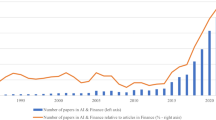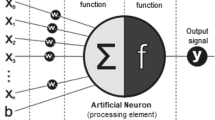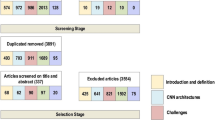Abstract
As a new financing model, crowdfunding has been developed rapidly in recent years and has attracted the attention of investors and small- and medium-sized enterprises and entrepreneurs. However, many projects fail to be funded; thus, crowdfunding project fundraising outcomes forecasting and multimodel comparisons are meaningful ways to identify project quality and reduce market risk. It is important to reduce participation risk through automated methods, which is of great significance to the sustainable development of Internet finance. First, based on the data from the Kickstarter, preprocessing and exploratory analysis are conducted. Then, we introduce a deep learning algorithm (multilayer perceptron) and apply it to the prediction of crowdfunding financing performance. We compare deep learning with other commonly used machine learning algorithms, including decision tree, random forest, logistic regression, support vector machine, and K-nearest neighbors algorithm. We tune each machine learning algorithm to get the best parameters. The experimental results show that the deep learning model can obtain the best prediction results, with an accuracy of 92.3% when predicting the fundraising outcomes of crowdfunding financing, followed by the decision tree. Deep learning shows significant advantages in many evaluation criteria, which demonstrates the potential for crowdfunding project financing predictions. This study combines machine learning with Internet finance, providing inspiration for future research and resulting in many practical implications.















Similar content being viewed by others

References
An J, Quercia D, Crowcroft J (2014) Recommending investors for crowdfunding projects. In: Proceedings of the 23rd international conference on World wide web, 2014. ACM, pp 261–270
Bach FR (2014) Adaptivity of averaged stochastic gradient descent to local strong convexity for logistic regression. J Mach Learn Res 15:595–627
Biljohn MIM, Lues L (2019) Social innovation and service delivery in Belgium and South Africa. Transf Gov People Process Policy 13:143–158
Blei DM, Ng AY, Jordan MI (2003) Latent dirichlet allocation. J Mach Learn Res 3:993–1022
Brent DA, Lorah K (2019) The economic geography of civic crowdfunding. Cities 90:122–130
Briceno CEB, Santos FCA (2019) Knowledge management, the missing piece in the 2030 agenda and SDGs puzzle. Int J Sustain High Educ 20:901–916
Brown I, Mues C (2012) An experimental comparison of classification algorithms for imbalanced credit scoring data sets. Expert Syst Appl 39:3446–3453
Carroll HD, Kann MG, Sheetlin SL, Spouge JL (2010) Threshold average precision (TAP-k): a measure of retrieval designed for bioinformatics. Bioinformatics 26:1708–1713
Chaney D (2019) A principal–agent perspective on consumer co-production: crowdfunding and the redefinition of consumer power. Technol Forecast Soc Chang 141:74–84
Chen X, Wang H, Ma Y, Zheng X, Guo L (2020) Self-adaptive resource allocation for cloud-based software services based on iterative QoS prediction model. Future Gener Comput Syst 105:287–296
Chinnaswamy A, Papa A, Dezi L, Mattiacci A (2019) Big data visualisation, geographic information systems and decision making in healthcare management. Manag Decis 57:1937–1959
Denoeux T (2019) Logistic regression, neural networks and dempster-shafer theory: a new perspective. Knowl-Based Syst 176:54–67
Etter V, Grossglauser M, Thiran P (2013) Launch hard or go home! Predicting the success of Kickstarter campaigns. In: Proceedings of the first ACM conference on Online Social Networks (COSN’13), vol CONF. ACM, pp 177–182
Gafni H, Marom D, Sade O (2019) Are the life and death of an early-stage venture indeed in the power of the tongue? Lessons from online crowdfunding pitches. Strateg Entrepreneurship J 13:3–23
Gong X-L, Liu X-H, Xiong X, Zhuang X-T (2019) Forecasting stock volatility process using improved least square support vector machine approach. Soft Comput 23:11867–11881
Greenberg MD, Pardo B, Hariharan K, Gerber E (2013) Crowdfunding support tools: predicting success & failure. In: CHI’13 extended abstracts on human factors in computing systems. ACM, pp 1815–1820
Kaminski JC, Hopp C (2019) Predicting outcomes in crowdfunding campaigns with textual, visual, and linguistic signals. Small Bus Econ. https://doi.org/10.1007/s11187-019-00218-w
Kaminski J, Hopp C, Tykvová T (2019) New technology assessment in entrepreneurial financing-does crowdfunding predict venture capital investments? Technol Forecast Soc Chang 139:287–302
Kraus S, Richter C, Brem A, Cheng C-F, Chang M-L (2016) Strategies for reward-based crowdfunding campaigns. J Innov Knowl 1:13–23
Kromidha E, Robson P (2016) Social identity and signalling success factors in online crowdfunding. Entrepreneurship Reg Dev 28:605–629
Laurell C, Sandström C, Suseno Y (2019) Assessing the interplay between crowdfunding and sustainability in social media. Technol Forecast Soc Chang 141:117–127
Li Y, Yang B, Yan L, Gao W (2020) Energy-aware resource management for uplink non-orthogonal multiple access: multi-agent deep reinforcement learning. Future Gener Comput Syst 105:684–694
Long W, Lu Z, Cui L (2019) Deep learning-based feature engineering for stock price movement prediction. Knowl-Based Syst 164:163–173
Mantas CJ, Castellano JG, Moral-García S, Abellán J (2019) A comparison of random forest based algorithms: random credal random forest versus oblique random forest. Soft Comput 23:10739–10754
Miglo A, Miglo V (2019) Market imperfections and crowdfunding. Small Bus Econ 53:51–79
Mollick E (2014) The dynamics of crowdfunding: an exploratory study. J Bus Ventur 29:1–16
Pareek B, Liu Q, Ghosh P (2019) Ask your doctor if this product is right for you: a bayesian joint model for patient drug requests and physician prescriptions. J R Stat Soc Ser A Forthcom 182:197–223
Parhankangas A, Renko M (2017) Linguistic style and crowdfunding success among social and commercial entrepreneurs. J Bus Ventur 32:215–236
Parisi L, RaviChandran N, Manaog ML (2018) Decision support system to improve postoperative discharge: a novel multi-class classification approach. Knowl-Based Syst 152:1–10
Rey-García M, Calvo N, Mato-Santiso V (2019) Collective social enterprises for social innovation. Manag Decis 57:1415–1440
Rokach L (2016) Decision forest: twenty years of research. Inf Fusion 27:111–125
Saqlain SM, Sher M, Shah FA, Khan I, Ashraf MU, Awais M, Ghani A (2019) Fisher score and Matthews correlation coefficient-based feature subset selection for heart disease diagnosis using support vector machines. Knowl Inf Syst 58:139–167
Saumya S, Singh JP, Dwivedi YK (2019) Predicting the helpfulness score of online reviews using convolutional neural network. Soft Comput. https://doi.org/10.1007/s00500-019-03851-5
Simons A, Kaiser LF, vom Brocke J (2019) Enterprise crowdfunding: foundations, applications, and research findings. Bus Inf Syst Eng 61:113–121
Testa S, Nielsen KR, Bogers M, Cincotti S (2019) The role of crowdfunding in moving towards a sustainable society. Technol Forecast Soc Chang 141:66–73
Ulo KLM, Hidayanto AN, Sandhyaduhita PI, Fitriani WR, Abidin Z (2019) Factors influencing internet users’ intention to sign e-petitions. Transform Gov People Process Policy 13:257–275
Vismara S (2019) Sustainability in equity crowdfunding. Technol Forecast Soc Chang 141:98–106
Wahbeh AH, Al-Radaideh QA, Al-Kabi MN, Al-Shawakfa EM (2011) A comparison study between data mining tools over some classification methods. Int J Adv Comput Sci Appl 8:18–26
Wang W, Tan G, Wang H (2017a) Cross-domain comparison of algorithm performance in extracting aspect-based opinions from Chinese online reviews. Int J Mach Learn Cybernet 8:1053–1070
Wang W, Zhu K, Wang H, Wu Y-CJ (2017b) The impact of sentiment orientations on successful crowdfunding campaigns through text analytics. IET Softw 11:229–238
Wang T, Jin F, Cheng Y (2019a) Early predictions for medical crowdfunding: a deep learning approach using diverse inputs. arXiv:191105702
Wang W, Shen J, Xie J, Cheng M-M, Ling H, Borji A (2019b) Revisiting video saliency prediction in the deep learning era. IEEE Trans Pattern Anal Mach Intell. https://doi.org/10.1109/TPAMI.2019.2924417
Wong T-T, Yang N-Y (2017) Dependency analysis of accuracy estimates in k-fold cross validation. IEEE Trans Knowl Data Eng 29:2417–2427
Wu YJ, Chen S-C, Pan C-I (2019) Entrepreneurship in the internet age: internet, entrepreneurs, and capital resources. Int J Semant Web Inf Syst (IJSWIS) 15:21–30
Xue J, Wu K, Zhou Y (2019) A risk analysis and prediction model of electric power GIS based on deep learning. Int J Comput Sci Eng 18:39–43
Yao L, Ge Z (2019) Distributed parallel deep learning of hierarchical extreme learning machine for multimode quality prediction with big process data. Eng Appl Artif Intell 81:450–465
Yao H, Zhang Y (2014) Research on influence factors of crowdfunding. Int Bus Manag 9:27–31
Yuan H, Lau RY, Xu W (2016) The determinants of crowdfunding success: a semantic text analytics approach. Decis Support Syst 91:67–76
Zhao H, Jin B, Liu Q, Ge Y, Chen E, Zhang X, Xu T (2019) Voice of charity: prospecting the donation recurrence & donor retention in crowdfunding. IEEE Trans Knowl Data Eng 14:1–14
Acknowledgements
This work is partially supported by the NSFC Grant (71601082), Natural Science Foundation of Fujian Province (2017J01132), Huaqiao University’s High Level Talent Research Start Project Funding (16SKBS102) and Teaching development reform project for Huaqiao University teachers (17JF-JXGZ17) and Ministry of Science & Technology, Taiwan (MOST 108-2511-H-003 -034 –MY2).
Author information
Authors and Affiliations
Corresponding author
Ethics declarations
Conflict of interest
The authors declare that they have no conflict of interest.
Ethical approval
This article does not contain any studies with human participants or animals performed by any of the authors.
Additional information
Communicated by Mu-Yen Chen.
Publisher's Note
Springer Nature remains neutral with regard to jurisdictional claims in published maps and institutional affiliations.
Rights and permissions
About this article
Cite this article
Wang, W., Zheng, H. & Wu, Y.J. Prediction of fundraising outcomes for crowdfunding projects based on deep learning: a multimodel comparative study. Soft Comput 24, 8323–8341 (2020). https://doi.org/10.1007/s00500-020-04822-x
Published:
Issue Date:
DOI: https://doi.org/10.1007/s00500-020-04822-x



